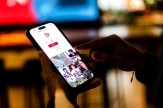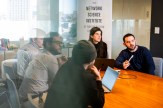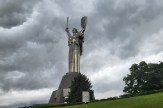How do we solve the global refugee crisis, climate change, fake news, and other complex problems facing the world today?
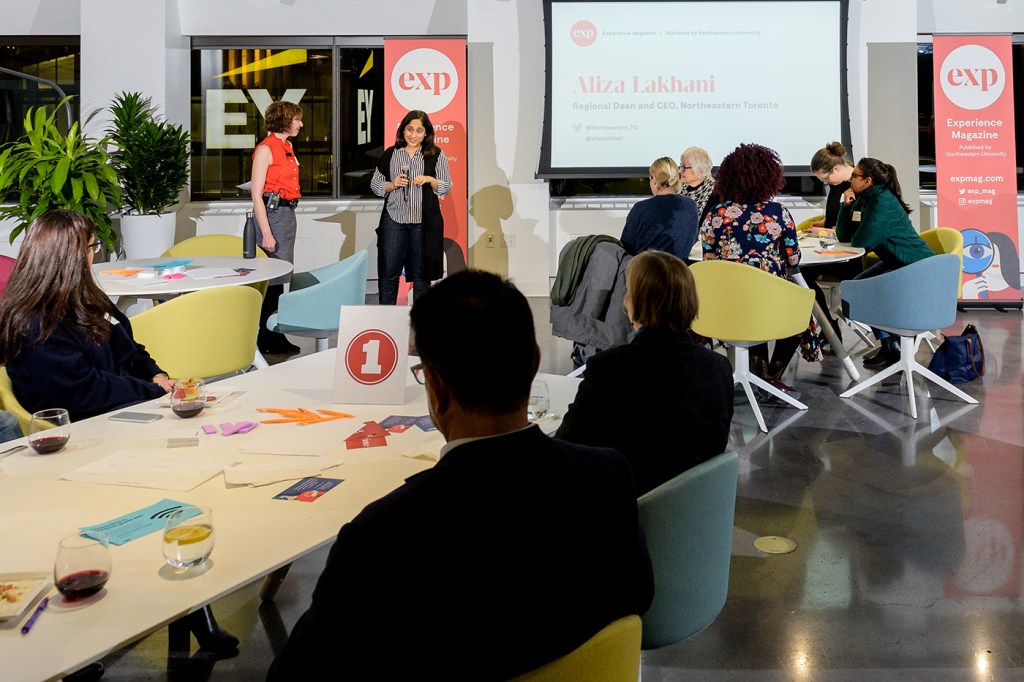
TORONTO—The global refugee crisis. Climate change. Fake news.
How do we solve some of the most complex problems facing the world today? To start, we need to narrow them down into specific challenges that have specific solutions. That’s the approach a group of experts and civically engaged Canadians took at the Experience Solution Sprint, a two-hour search for novel ideas to these seemingly intractable issues that was hosted by Experience magazine.
“For a lot of the big challenges we face, it’s not the solution that’s really evasive, it’s the problem and the approach,” said Joanna Weiss, editor-in-chief of Experience magazine, which is published by Northeastern University. “What we’re doing here is identifying the obstacle as a way to find a way to get over the obstacle.”
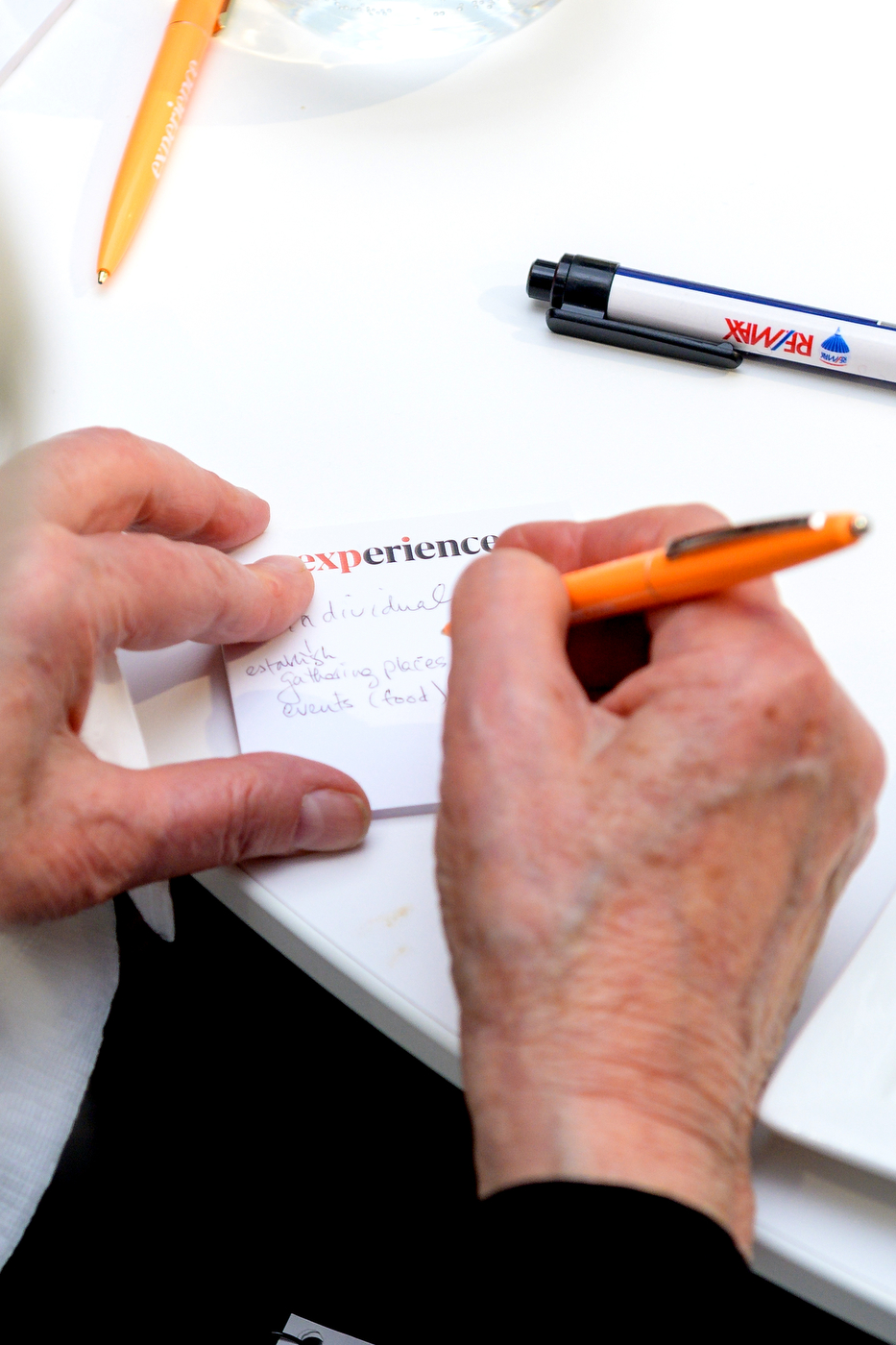
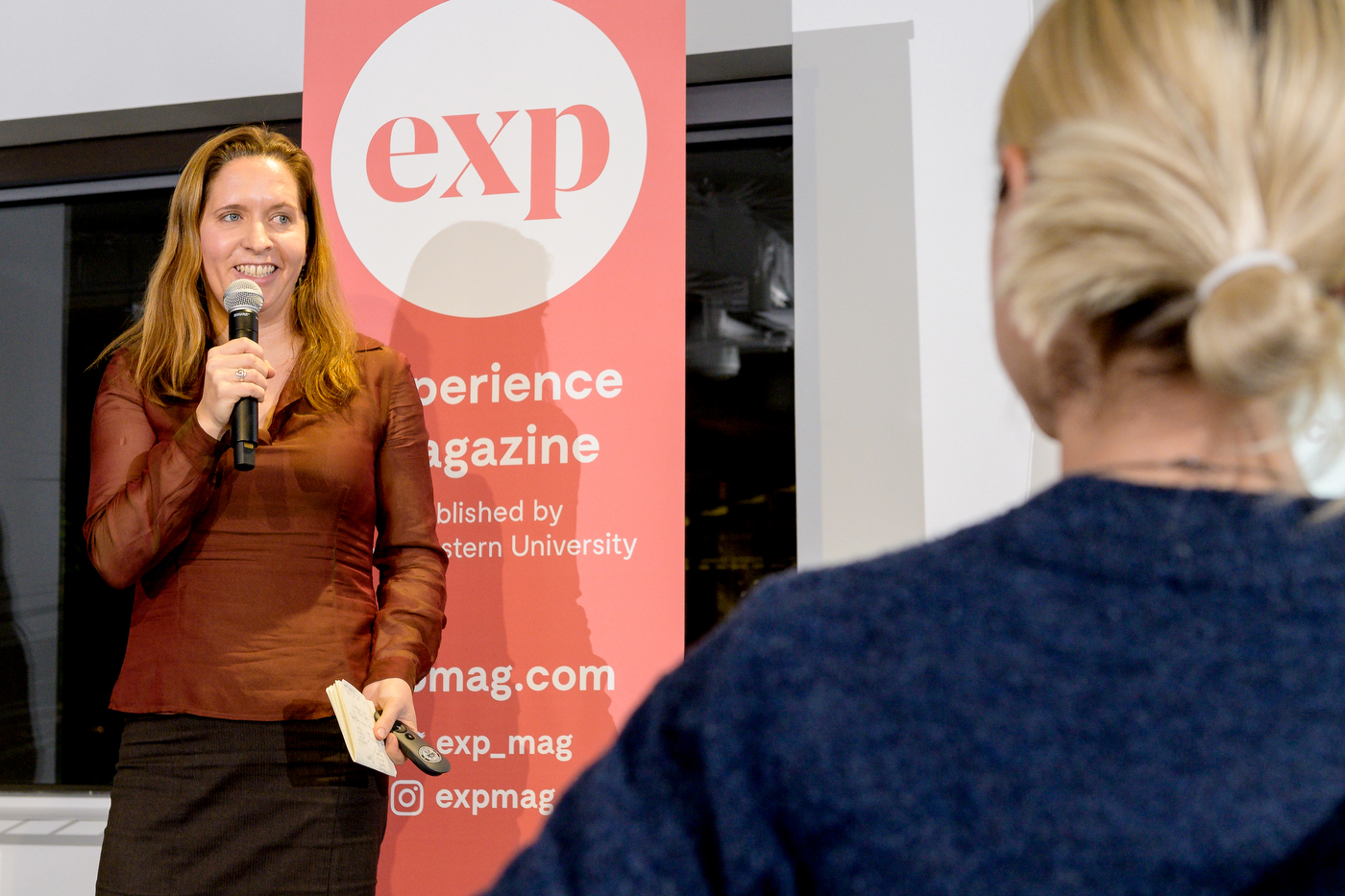
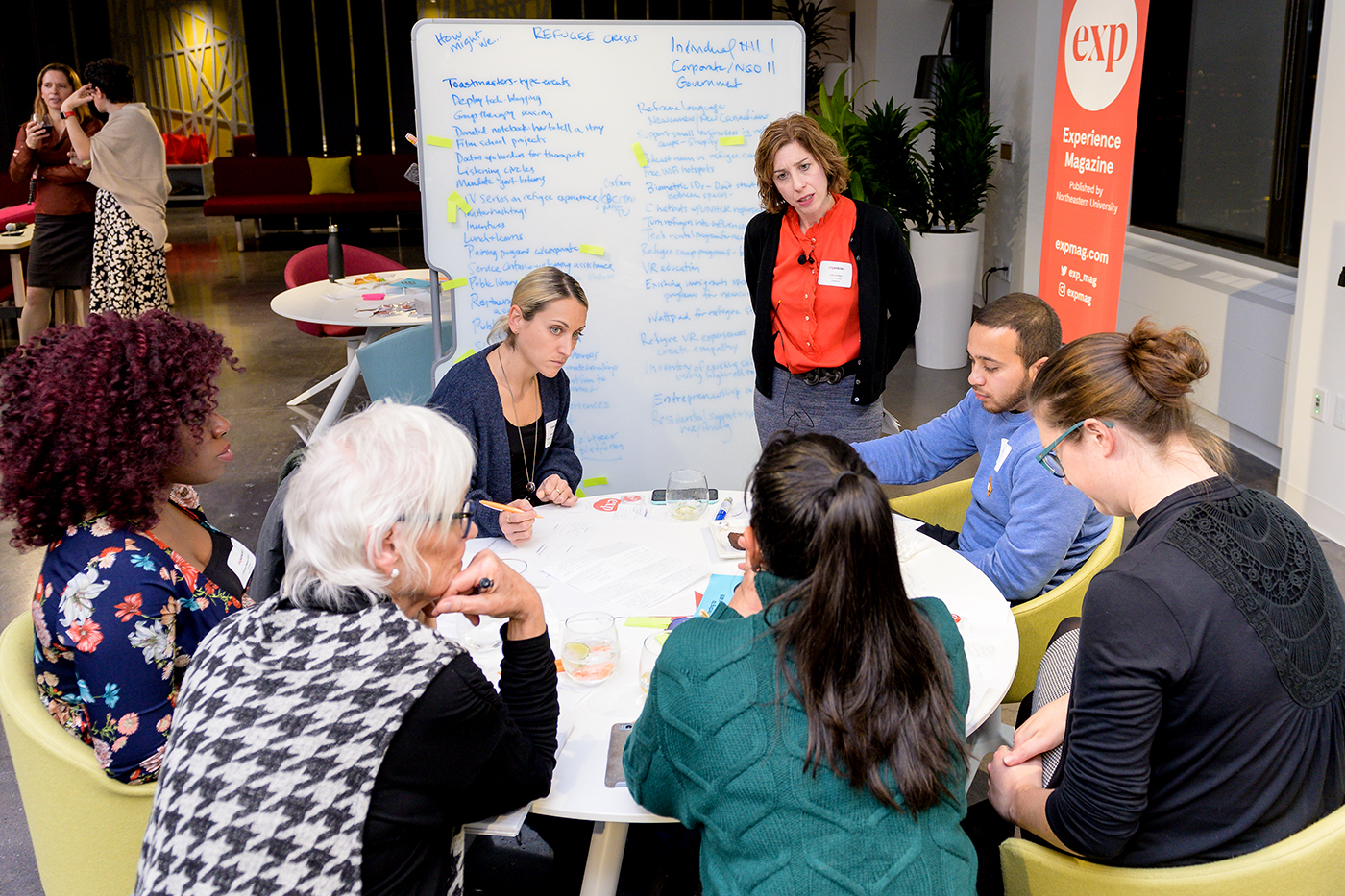
The event, held on Northeastern’s Toronto campus, featured quick talks by three people who study the refugee crisis, climate change, and fake news, as a way to set the table for the brainstorming session that followed.
For example: The refugee crisis is not just a story of Alan Kurdi, the three-year-old Syrian boy whose fatal voyage to Greece made headlines in 2015, said Muhammad Lila, an international correspondent for CNN who has covered the migrant crisis.
It is also the story of a Turkish migrant who started out “working seven days a week flipping burgers,” at a restaurant in Toronto’s Kensington Market and who, four years later, owns three restaurants and is building a fourth, Lila said.
The problem then, Lila said, is: “How can we make stories [like this one] go viral around the world, and focus on the solutions, rather than focus on Alan’s case, which did go viral, where we all saw the problem?”
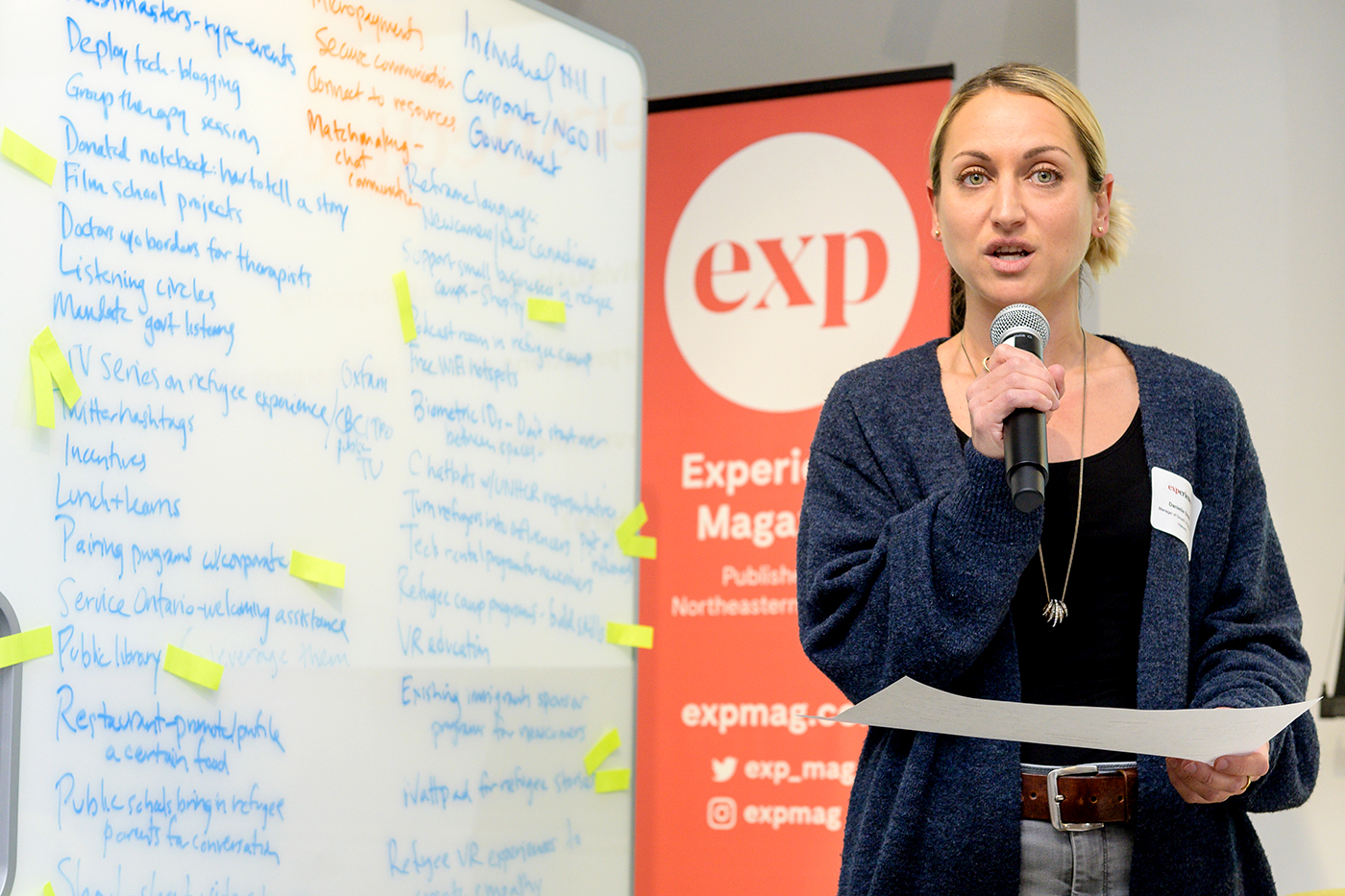
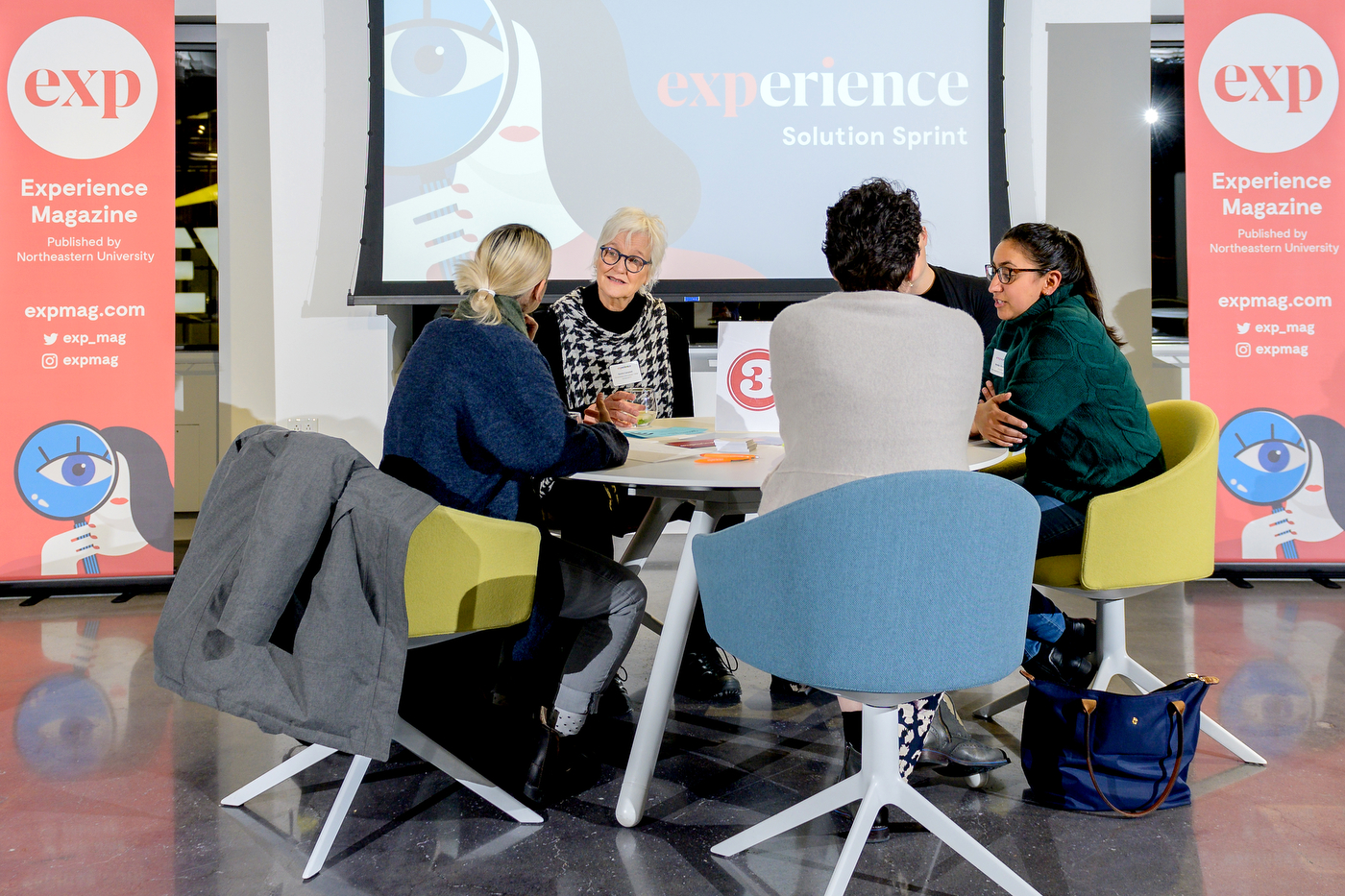
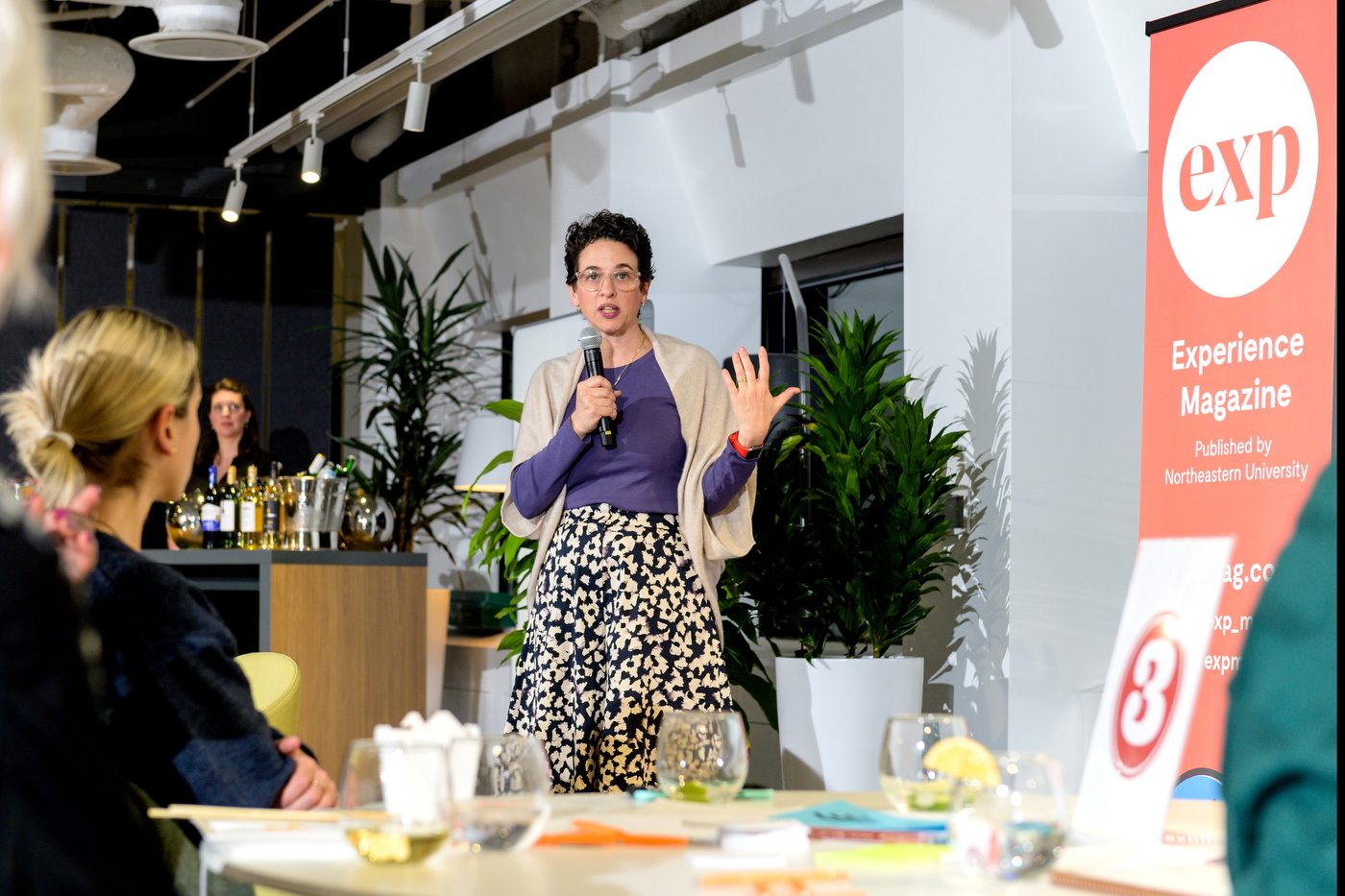
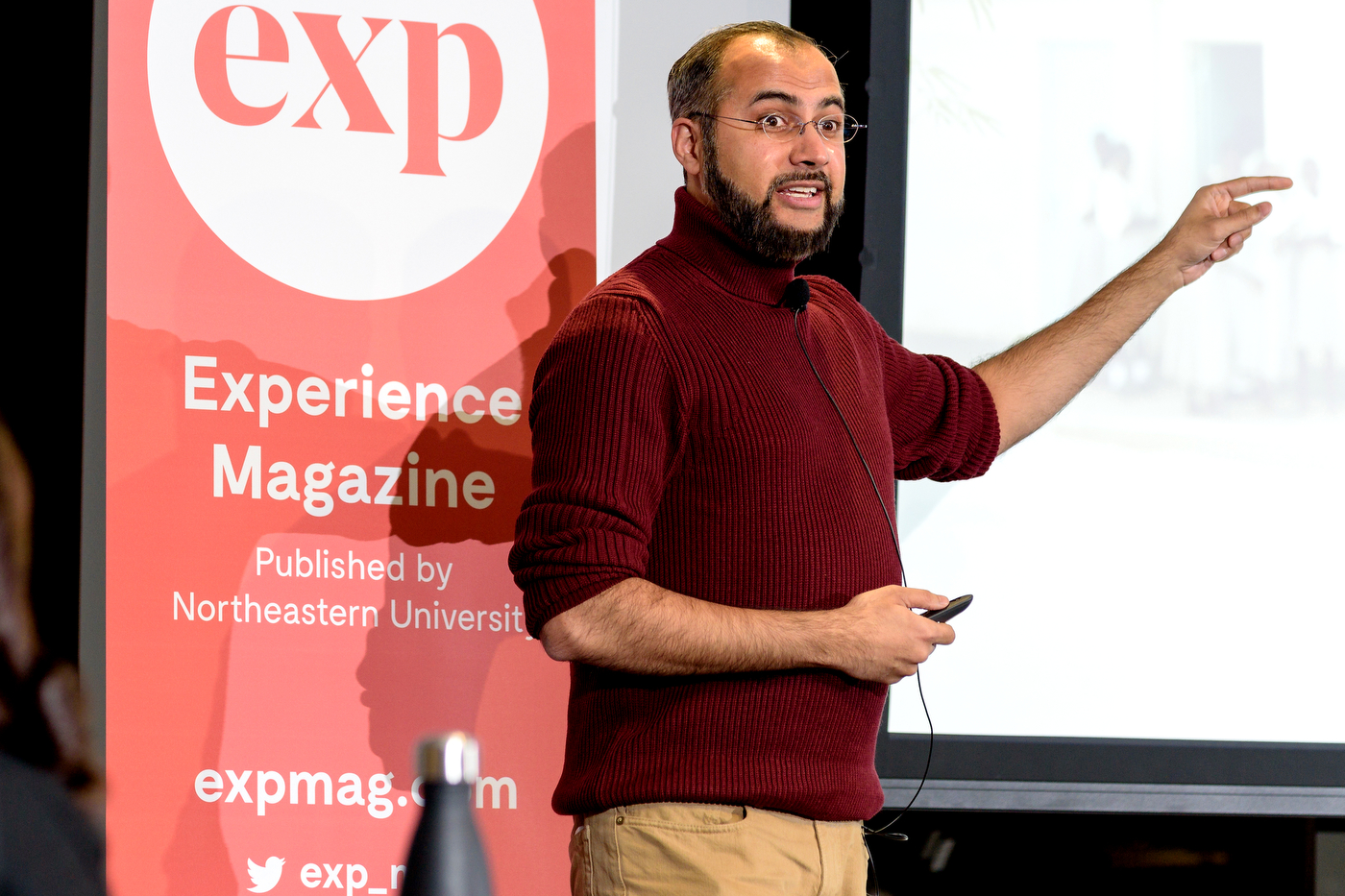
For Jennie C. Stephens, director of Northeastern’s School of Public Policy and Urban Affairs and the Dean’s Professor of Sustainability Science and Policy, climate change is a similarly large-scale challenge, and one that she’s been studying for her entire career.
Lately, she said, she’s been focusing “more and more on the social and political dimensions of the climate change problem,” looking for ways to inspire systemic change.
Elected leadership is one such way, she said.
“When we have leaders who are younger and who are representative of different communities that haven’t been well-represented in our political system, we see that new and different ideas emerge,” she said.
The smaller problem within climate change? “How can we amplify those voices to drive more transformative change?” Stephens asked.
Finally, participants were asked to consider the problem of fake news.
Alexandra Samuel, a technology writer and researcher whose work has appeared in Experience magazine and The Wall Street Journal, made note of the misinformation that was rampant in both the United Kingdom’s Brexit referendum and the 2016 United States presidential election.
While citizens can’t stop people from publishing fake news, they can better arm themselves against it, when it appears on their individual newsfeeds, Samuel said. She cited research that suggested that “people who have more heterogeneous social circles are more resilient and less likely to believe fake news stories.”
She called it “personal inoculation.” That is, “If you see more people who think differently than you, you’re less likely to believe a narrow worldview.”
To narrow down the problem of combating fake news, Samuel urged participants to consider ways that individuals might expand their online social circles in order to “reduce the pernicious effect of fake news.”
Participants at the event then broke up into three small groups, each of which tackled one of the issues presented by Lila, Stephens, and Samuel. Weiss challenged them to “scrape the back and bottom of their brains” for fresh, new ideas. To create some structure to the conversations, the groups utilized a brainstorming framework suggested by Northeastern’s Center for Design.
The group that considered the refugee crisis developed an idea for a comprehensive end-to-end online platform that enables refugees to share their stories before, during, and after resettlement. The platform would also provide resources to help refugees share their stories and connect to government and volunteer services.
The group that discussed climate change came up with an idea called the Carbon Footprint Tax Incentive app contest, in which the federal government would offer a tax break for corporations willing to sponsor a nationwide education program and contest. The contest would challenge public school students to develop an app that could track a person’s carbon footprint.
The group that tackled fake news proposed creating new ways to encourage people to meet in real life, particularly people who don’t share the same world views. They also considered radical changes to how social media works, such as banning anonymity and unfriending.
Joanna Weiss contributing reporting from Toronto. Molly Callahan wrote this story in Boston.
For media inquiries, please contact media@northeastern.edu.


